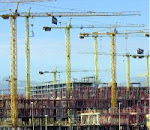This weekend I realised that some of my international friends are confused by what's happening in Spain with Catalonia. I hope this helps:
-Spain is a western democracy and its Catalan citizens vote frequently. In fact, between European, national, regional and municipal elections we have voted 6 times in the last five years.
-In the last regional election, pro-secession parties decided to unite around a single issue- independence- and not only failed to win a majority of thevote, but also lost votes relative to the prior election. Polls, even those paid for by separatists, show support for independence is a minority and in decline.
-Catalonia is not "oppressed". It is one of the most prosperous regions in Spain and its citizens enjoy a high standard of living and one the highest degrees of self-rule of any region in Europe.
-The party that traditionally ran the regional government of Catalonia has, for the last 30 years, used public money to promote a separatist agenda through education and local media and has illegally funded itself with a corrupt scheme where contractors had to pay bribes of at least 3% of any public work.
-The region of Catalonia has never existed as an independent political entity and was a part of the Kingdom of Aragon, which merged dynastically with the Kingdom of Castille in 1492 to create the Spain we know today. There is no "union", as in the UK- Catalonia is to Spain what Rousillon is to France or Cornwall to England.
-Spain is a parliamentary democracy, with a constitution that can be amended. A vote on territorial secession would require such amendment and the support of a qualified majority of Spaniards.
-Not a single country or international organisation, with the exception of Nicolas Maduro in Venezuela, has supported this movement.
-In the last regional election, pro-secession parties decided to unite around a single issue- independence- and not only failed to win a majority of thevote, but also lost votes relative to the prior election. Polls, even those paid for by separatists, show support for independence is a minority and in decline.
-Catalonia is not "oppressed". It is one of the most prosperous regions in Spain and its citizens enjoy a high standard of living and one the highest degrees of self-rule of any region in Europe.
-The party that traditionally ran the regional government of Catalonia has, for the last 30 years, used public money to promote a separatist agenda through education and local media and has illegally funded itself with a corrupt scheme where contractors had to pay bribes of at least 3% of any public work.
-The region of Catalonia has never existed as an independent political entity and was a part of the Kingdom of Aragon, which merged dynastically with the Kingdom of Castille in 1492 to create the Spain we know today. There is no "union", as in the UK- Catalonia is to Spain what Rousillon is to France or Cornwall to England.
-Spain is a parliamentary democracy, with a constitution that can be amended. A vote on territorial secession would require such amendment and the support of a qualified majority of Spaniards.
-Not a single country or international organisation, with the exception of Nicolas Maduro in Venezuela, has supported this movement.
So why the fuss? As the economy improves and support for independence wanes, the separatists are afraid of "missing the train" and, breaking Spanish and regional laws, have embarked on a campaign to present the central government as "evil", for not allowing a regional referendum which does not comply with the constitution (overwhelmingly approved throughout Spain, including Catalonia). This noise also conveniently masks regional corruption scandals and sets up the separatists as victims for the next regional election.
